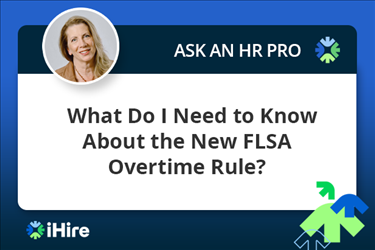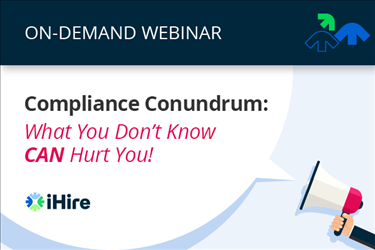- Employer Resources
- |
- Last Updated: May 03, 2023

Hiring & Retaining a Multi-Generational Workforce in Healthcare
As the healthcare industry continues to rapidly evolve, employers are faced with the challenge of hiring a multigenerational workforce. It’s important to understand the different generations that make up this workforce, as well as their strengths and weaknesses when it comes to working in the medical field. In order to effectively hire and retain workers from all generations, there are certain strategies employers should consider implementing. Let’s take a closer look at how employers can successfully manage hiring in healthcare for a multigenerational workforce.
The Benefits of a Multigenerational Workforce
When managed properly, a multigenerational workplace can be highly beneficial for employers. Each generation brings its own unique set of skills, experiences, and perspectives that can be used to create a more productive and efficient workplace. A multigenerational workforce can also provide an opportunity for mentorship and collaboration, as workers from different generations learn from one another’s knowledge and experience.

Generation Differences in the Healthcare Workplace
When considering how to best hire and manage a multigenerational healthcare workforce, employers should be aware of the specific strengths and weaknesses each generation brings to the table.
Baby Boomers
Baby boomers refer to those born between 1946 and 1964. This generation is often seen as more traditional in its approach to healthcare management. They typically bring a wealth of experience with them and may be resistant to change when it comes to technology or processes.
Strengths of baby boomers related to hiring in healthcare:
- Years of experience
- Reliability
- Strong work ethic
- Competitive and motivated
Possible challenges for baby boomers related to hiring in healthcare:
- Resistance to change
- Lack of technology proficiency
- Decreased physical stamina
- Length of time until retirement
Generation X
Generation X refers to those born between 1965 and 1980. This generation is seen as more independent and results-oriented than their baby boomer counterparts. They are comfortable with both traditional and modern approaches and are often willing to take risks and try new methods.
Strengths of Generation X related to hiring in healthcare:
- Adaptability
- Results-oriented
- Independent workers
- Comfortable with most current technology
Possible challenges for Generation X related to hiring in healthcare:
- Tendency to be suspicious of authority
- Self-reliance, lack of team-awareness
- Unwillingness to stay in one position for too long
Millennials
Millennials, or Generation Y, refers to those born between 1981 and 1996. This generation is known for its ability to adapt quickly to new technology and is often eager to learn and take on new challenges.
Strengths of millennials related to hiring in healthcare:
- Technology proficiency
- Open to change and new processes
- Multi-tasking ability
- Desire to learn and take on responsibility
Possible challenges for millennials related to hiring in healthcare:
- Lack of experience and knowledge base
- Low level of commitment to any one job/position
- Difficulty maintaining focus over extended periods of time
- Disenchantment with authority or desire to be in positions of authority
Gen Z
This generation is just starting to enter the workforce, but employers should be aware of the unique skills and experiences they bring to the table. Gen Z is known for its resilience in adapting to new technology, as well as its emphasis on collaboration and teamwork.
Strengths of Generation Z related to hiring in healthcare:
- Tech-savviness
- Collaborative spirit
- Innovation and creativity
Possible challenges for Generation Z related to hiring in healthcare:
- Inexperience with traditional methods
- Lack of experience and knowledge base
- Low level of commitment to any one job/position
- Emphasis on personal brand versus company brand/loyalty
It's important to note that each of these generational differences in the workforce is a broad generalization, and employers should recognize that there will be a large degree of individual variation within each generation. The key to creating an effective, multigenerational healthcare workforce is recognizing the unique strengths and weaknesses of each generation and generating strategies to capitalize on them all.
Create Your Account Today
Strategies for Multi-Generational Hiring in Healthcare
Here are a few strategies to consider for recruiting for a multi-generational workforce.
Intergenerational Job Ads
Take an intergenerational approach when creating job postings. Describe the workplace environment and the expected qualities from candidates, emphasizing the value of different generations’ contributions. For example, to encourage baby boomer applicants, you may use messaging around the lack of technology necessary for the position. Conversely, to attract Gen Zers, you may emphasize the innovative, tech-driven aspects of the role.
Ultimately, though, you want to be sure your job ad covers a wide range of generations. While certain generations may seem more suitable for the job, you also do not want to unintentionally exclude highly qualified individuals. For example, while it may seem that the Gen X generation may be the best candidates to target for a management position, an individual from the millennial or Gen Z generation may have strong leadership skills from unique backgrounds or experiences. Conversely, while entry-level positions may often seem best for the Gen Z generation, those in older generations may have made recent career changes and be looking to get hired in healthcare at an entry-level. They may bring additional skills and be a great leader to build up in the company.
By actively recruiting for a multi-generational workforce and taking an intergenerational approach to job ads, healthcare employers can better ensure they are hiring the best person for each position while still considering the contributions of individuals from all generations. This will help create a successful and balanced workplace where everyone can work together to deliver high-quality care.
Utilize Multi-Generational Workforce Recruiting Platforms
Now that people from all generations have access to a variety of different technologies, employers should consider using multi-generational workforce recruiting platforms in order to cast a wide net for potential candidates. Platforms like iHire are designed to ensure employers are reaching the right people for each job opening based on numerous factors, such as location, skills, credentials, experience, etc., and iHire has been building its base of job seeker members since 1999.
By utilizing multi-generational workforce recruiting platforms, healthcare organizations can ensure they are reaching not only the millennials and Gen Zers on social media, but also those who may be less tech-savvy or prefer to use job sites dedicated to their industry. Especially in healthcare, where each unit or clinic can benefit from both expertise and innovation, multi-generational workforce recruiting strategies are essential for creating a successful and well-rounded workplace.
Invest in Multi-Generational Workforce Recruiting Strategies
When recruiting, it’s important to appeal to all generations. For example, while print and radio advertising may work better for baby boomers and Generation X, millennials tend to respond better to digital platforms like social media or job boards. As such, healthcare employers should invest in a variety of recruiting strategies to appeal to the widest possible range of candidates.

Strategies for Retaining a Multigenerational Workforce
To best utilize these generational skillsets, healthcare organizations should focus on creating an engaging work environment where each worker feels valued and respected regardless of age or experience level.
To do so, employers should implement flexible work schedules that accommodate all ages and lifestyles (for example, offering remote or part-time hours). Employers should also create career pathways for each generation. For example, millennials may respond better to career coaching than direct instruction from supervisors, while boomers may prefer more traditional training methods like seminars or workshops.
It’s also essential for healthcare organizations to foster teamwork among different generations by organizing group projects that allow everyone to benefit from each other's strengths and contributions.
Finally, healthcare employers should make sure to recognize and reward employees from all generations for their successes and hard work in ways that are meaningful to them. For example, Generation Y workers may respond better to public recognition, such as social media posts, while baby boomers might prefer a bonus or promotion.
Investing in Progress Means Investing in Hiring an Intergenerational Workforce
By making an effort to understand and appreciate the unique strengths of each generation, healthcare organizations can create a successful multigenerational workplace that will help them achieve their goals. By leveraging each generation’s strengths and accommodating their weaknesses, employers can build a well-rounded workforce that is capable of achieving great heights in healthcare.
When done correctly, this approach has many benefits, such as increased productivity, improved customer satisfaction levels, and greater employee engagement overall—all leading to higher profits for you overall. With these tips in mind, you’re sure to find success in fostering an effective multi-generational workforce.
Learn more about the benefits of a diverse workforce and how you can improve your hiring strategies in our Resource Center.




